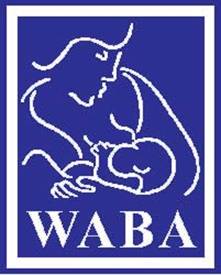
“I was thrilled and happy when I found out I was going to be a dad says Perapat, a shop owner. I wasn’t allowed to be in the delivery room because it was a caesarean section, so I was waiting outside the operating theatre. About two hours after the operation, I was able to hold my child. I was happy and proud to be a father. I waited outside the operation room because I wanted to be the first person to see my baby’s face. The first moment I saw him, my tears welled up. I think he looks like my wife, adds Perapat. I want him to grow up and be a good person. I want to be an idol for my child, to be a good person in society. I will try my best to be a good father. I have my own business. I plan to close my shop until my wife and child leave the hospital. Our shop opens in the evening until night, so I’ll spend my time during the day taking care of him.”

© UNICEF/UN0203786/Zehbrauskas
Perapat Maryoe, 32, helps his wife Wanichcha breastfeed their one-day-old son, nicknamed John, in their private room at the Regional Health Promotion Centre (Health Promoting Hospital) in Chiang Mai, Thailand, Thursday 8 March 2018.
The love of a father is a foundation for the future of a child. When mothers, fathers and family members work as a team around the care of children, it creates a haven within which these children can grow and thrive as mentioned in the adage “it takes a village to raise a child”.
The roles fathers and mothers are playing at work and at home are changing. More women are entering the workforce and balancing work as well as family poses challenges for parents. Being a parent has made it harder for many mothers to advance in their careers and this is now happening to some fathers too.
Improvement in gender equality benefits the parents and entire family. Fathers who are able to balance work and family life make it easier for mothers to do the same. Sharing the care for children and household tasks means that both parents have equal opportunity to have a fulfilling career and a strong relationship with their children.
This Father’s Day 2018, we celebrate a global social change that is seeing more and more fathers becoming hands on carers of their babies and share roles equitably with the mother of their children. The father-child bond starts at birth, or even before. Research shows that fathers in Vietnam who were counselled on how both to support breastfeeding and to interact directly with their infants right from birth reported significantly greater attachment to their infants throughout the first year. In China, when parents worked together as a team, mothers were happier because their spouses (fathers) were more supportive, cared for the baby more, did more housework and were more helpful when difficulties arose.
Family members, particularly fathers, are more likely to engage in caring and household work when they understand their important role in securing the health and welfare of their child. Research shows that fathers not only have the capacity for caregiving, but that children benefit directly. Involved and caring fatherhood, in addition to equitable relationships between men and women, help create a future where all win.
Family and work life balance will be easier with a social protection package that enables fathers to participate in caring. Paid parental leave entitlements will empower parents and carers to facilitate the integration of care work including breastfeeding and other work. Leave policies that offer paid, non-transferable leave for men and women help to advance gender equality, social justice, and the well-being of women, children, and men. Father-inclusive health and family services, good information sources for fathers and the facilitation of networks between fathers are all important social supports for involved fatherhood and gender equality. WABA and The Family Initiative are proud to be working together to promote the support of fathers for breastfeeding, building on the lead that many fathers have already taken.
For more information, contact:
Revathi Ramachandran revathi@waba.org.
Duncan Fisher duncan@familyinitiative.org.uk
